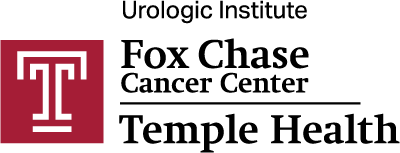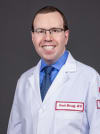Pleural Effusions and Pleural Disease

Program Goals
Pleural disease is a common but frequently misunderstood clinical entity within the field of pulmonary disease. While up to 30% of individuals assessed may have pleural effusions, the specific diagnostic and therapeutic modalities undertaken have significant downstream implications for the diagnostic yield of studies, potential complication profile, and in the setting of therapeutic procedures, the extent to which these can either help to facilitate overall treatment or to reduce symptom burden in the case of palliative-type procedures such as tunneled pleural catheters or chemical pleurodesis for malignant pleural effusions.
While pleural procedures are commonly performed by pulmonologists, thoracic surgeons, interventional radiologists, and in some centers, hospitalists, the specific indications for these procedures are frequently misunderstood. As such, diagnostic thoracenteses are frequently ordered with incomplete studies, thoracenteses are performed where chest tubes should be placed, and inappropriate type of chest tube is inserted, or patients are subjected to multiple procedures while a single definitive procedure could be performed. Our goal is to present these details and distinctions with a target audience of general internists, hospitalists, and advanced practice providers.
Target Audience
Pulmonologists, Critical Care Specialists, Internal Medicine and Primary Care Physicians, Physician Assistants, Advanced Practice Nurses, and Nurse Practitioners.
Learning Objectives
After the conclusion of this activity, participants should be able to:
- Identify basic anatomy and physiology of the pleural space, how this leads to the development of common presentations of pleural disease, and its implications on performing pleural procedures.
- Describe the indications for pleural fluid sampling, appropriate procedures to perform, and additional testing to be ordered on samples obtained based on potential underlying pathology.
- Develop a therapeutic algorithm for indications and timing of common pleural procedures in the treatment of both parapneumonic and malignant pleural effusions.
Faculty
David R. Manoff, M.D.
Associate Professor of Clinical Thoracic Medicine and Surgery
Lewis Katz School of Medicine at Temple University
Temple Lung Center
Educational Activity Agenda
Educational Presentation (59 minutes)
Post Test, Evaluation & Certificate delivery (10 minutes)
Total Activity: (69 minutes)
Faculty Disclosures
The faculty disclosed the following financial relationships with ineligible companies related to the content of this educational activity.
David R. Manoff, M.D.
• Nothing to disclose
None of the faculty for this educational activity have relevant financial relationships to disclose with ineligible companies.
Course Directors, Planners, Reviewers, and Managers/CME Staff Disclosures
The course directors, planners, reviewers, and managers/CME staff disclosed the following financial relationships with ineligible companies related to the content of this educational activity:
David R. Manoff M.D. (Planner and Faculty)
• Nothing to disclose
Andrew J. Gangemi, M.D. (Reviewer)
• Nothing to disclose
Arnold I. Meyer, Ed.D, FACEHP (Planner and CME Staff)
• Nothing to disclose
Katrina Ilagan (CME Staff)
• Nothing to disclose
*None of the course directors, planners, reviewers, and managers/CME staff for this educational activity have relevant financial relationships to disclose with ineligible companies.
Accreditation Statement

Lewis Katz School of Medicine at Temple University is accredited by the Accreditation Council for Continuing Medical Education (ACCME) to provide Continuing Medical Education for physicians.
Certification Statement
Lewis Katz School of Medicine at Temple University designates this enduring material for a maximum of 1.0 AMA PRA Category 1 Credit(s)™. Physicians should claim only the credit commensurate with the extent of their participation in the activity.
Disclosure Policy
It is the policy of the Lewis Katz School of Medicine at Temple University, The Albert J. Finestone, M.D., Office for Continuing Medical Education that anyone in a position to control the content of a certified educational activity must disclose any financial relationships with ineligible companies within the prior 24 months. The Accreditation Council for Continuing Medical Education (ACCME) defines ineligible companies as “those whose primary business is producing, marketing, selling, re-selling, or distributing healthcare products used by or on patients.” Speakers must also disclose discussions of unlabeled/unapproved uses of drugs or devices during their presentations. The Lewis Katz School of Medicine at Temple University has policies in place that will identify and mitigate all conflicts of interest prior to the educational activity. Detailed disclosure will be communicated to learners prior to the activity.
How to Obtain CME Credit
Attendees are expected to view all presentations before attempting to take the test and/or complete the activity evaluation. Successful completion will lead to the issuance of a certificate for AMA PRA Category 1 Credit(s)™. To receive credit, the course must be completed between March 1, 2024 - March 1, 2026.
Participation in this activity should be completed in approximately 1.0 hour(s). Please follow these steps in order to receive CME/CE credit for viewing the webcast:
- Read all of the CME/CE accreditation information above.
- View the complete electronic (web) activity.
- Click on the link to apply for CME/CE credits.
- Complete the online registration (registration is free).
- Complete the online test and/or evaluation. Participants must receive a test score of at least 75% and answer all evaluation questions to receive a certificate.
After successfully completing the online test and/or evaluation, your application will be immediately processed, and you will be given the opportunity to download a personalized CME/CE certificate for participation in this activity.
Should you have any CME questions regarding this activity, please contact:
The Albert J. Finestone, MD Office for Continuing Medical Education
Lewis Katz School of Medicine at Temple University
3500 North Broad Street
11th Floor MERB, Room 1111S
Philadelphia, PA 19140
Main CME Phone: 215-707-4787
Fax: 215-707-8268
Release and Expiration Dates
Release Date: March 1, 2024
Expiration Date: March 1, 2026


